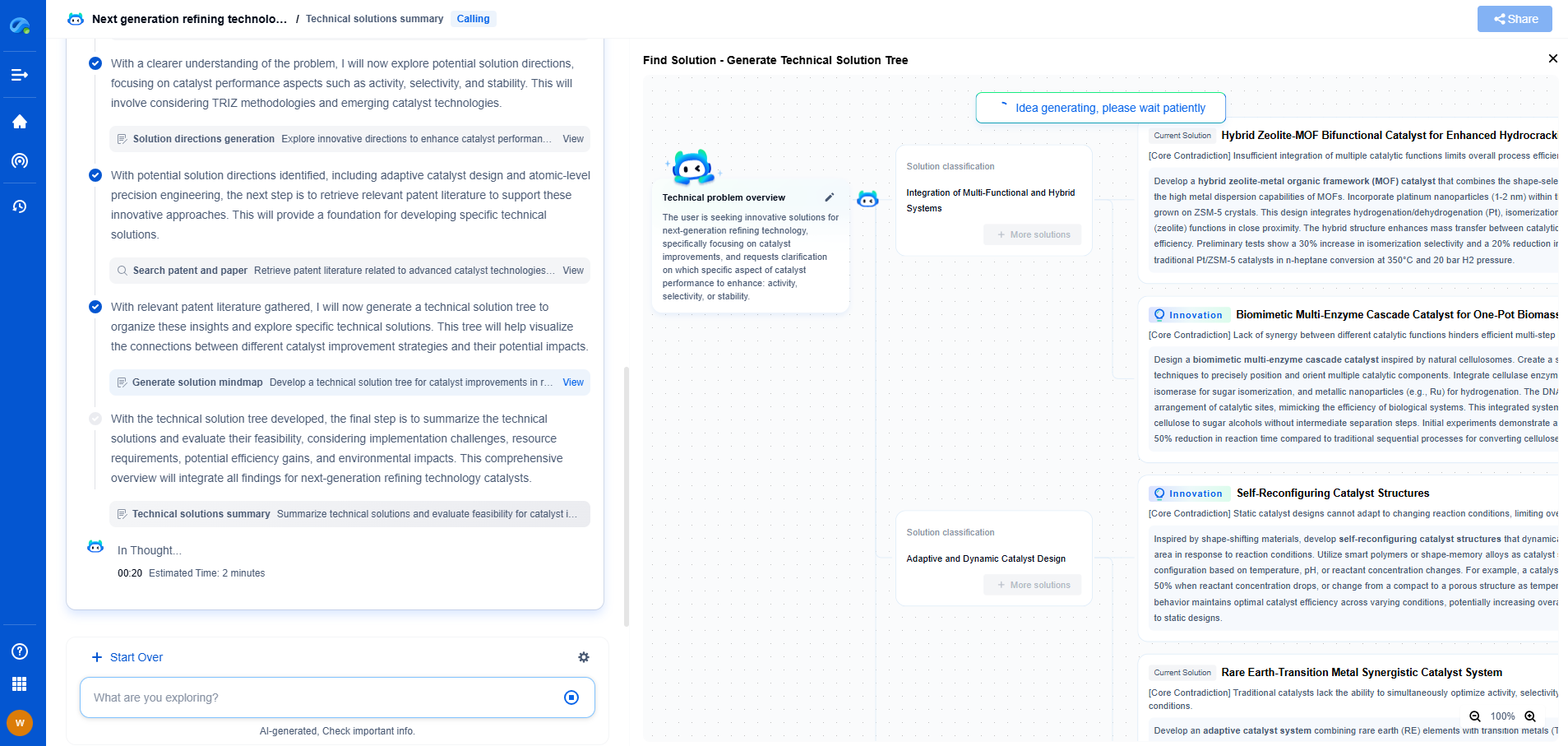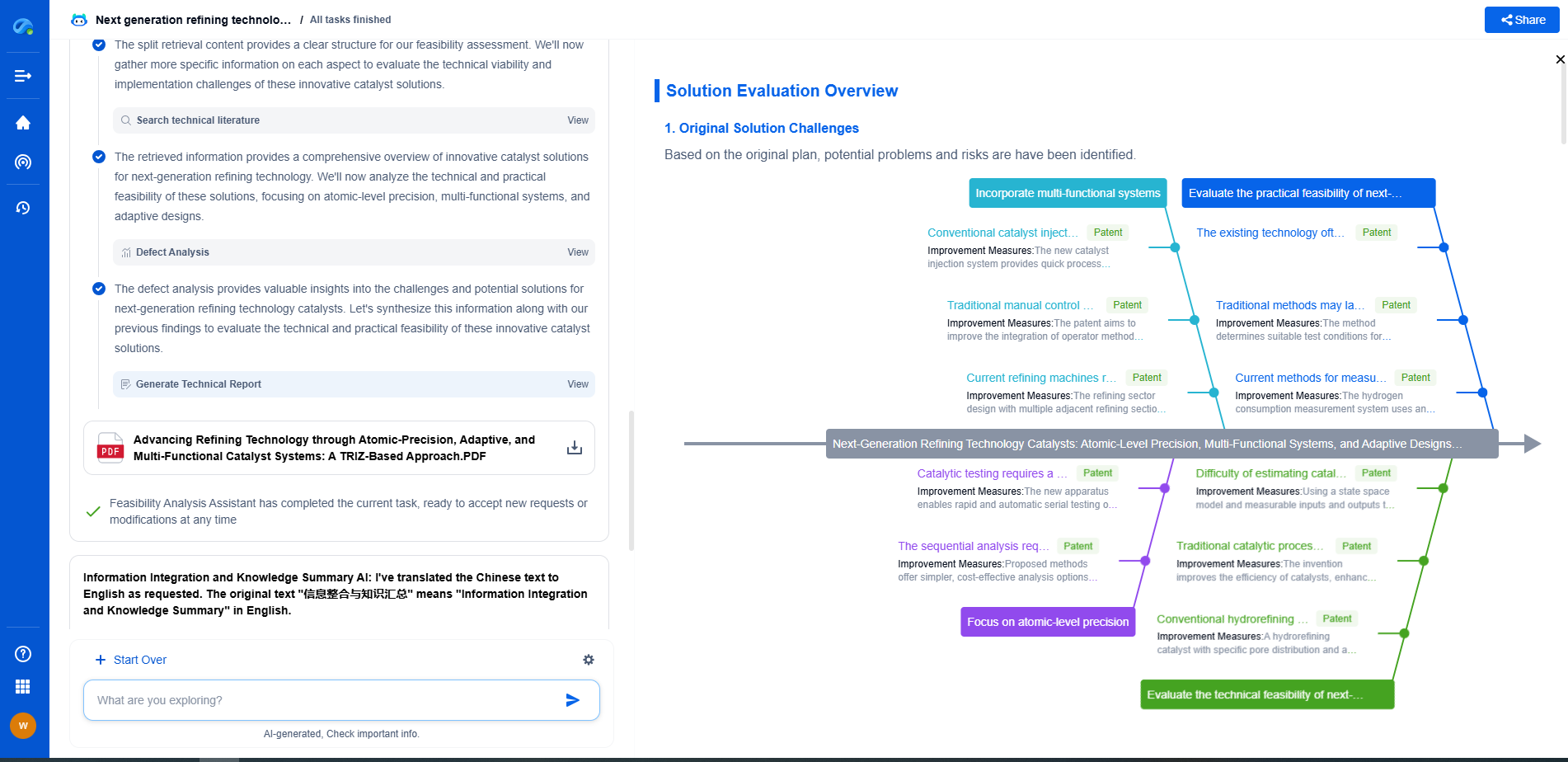NiMH vs Li-ion: Which Rechargeable Battery is Right for Your Device?
JUN 20, 2025 |
When it comes to choosing a rechargeable battery for your devices, two of the most common types you'll encounter are Nickel-Metal Hydride (NiMH) and Lithium-ion (Li-ion) batteries. Each type has its own unique characteristics, advantages, and disadvantages, which can greatly influence their suitability for different applications. Understanding these differences is crucial to making an informed decision.
The Basics of NiMH Batteries
Nickel-Metal Hydride batteries have been around since the late 20th century and have proven to be reliable and efficient in a variety of applications. They are commonly used in household items such as digital cameras, flashlights, and portable radios. One of the main advantages of NiMH batteries is their relatively high capacity and ability to deliver high current, making them suitable for devices that require significant power over a prolonged period.
Advantages of NiMH Batteries
1. Cost-Effectiveness: NiMH batteries are generally more affordable than Li-ion batteries, making them an economical choice for everyday devices.
2. Environmentally Friendly: These batteries contain fewer toxic metals compared to other types, making them easier to recycle.
3. High Capacity: NiMH batteries typically offer a higher capacity than their predecessors, NiCd (Nickel-Cadmium) batteries, which means they can store more energy and last longer per charge.
However, NiMH batteries aren't without their drawbacks. They are prone to self-discharge, losing their charge over time even when not in use. This characteristic makes them less ideal for devices that are only occasionally used.
The Basics of Li-ion Batteries
Lithium-ion batteries have become the gold standard for many modern devices, from smartphones and laptops to electric vehicles. They are known for their high energy density, which allows them to store more energy in a smaller and lighter package compared to NiMH batteries.
Advantages of Li-ion Batteries
1. Long Life Span: Li-ion batteries generally have a longer lifespan and can endure more charge cycles before losing capacity.
2. Low Self-Discharge Rate: Unlike NiMH batteries, Li-ion batteries have a very low self-discharge rate, retaining their charge over long periods when not in use.
3. Lightweight and Compact: Li-ion batteries are lighter and more compact than their NiMH counterparts, making them ideal for portable electronics where weight and size are critical factors.
Despite these advantages, Li-ion batteries come with a higher price tag, which can be a deterrent for budget-conscious consumers. Additionally, they require more sophisticated charging systems to prevent overcharging and overheating, which can pose safety risks.
Which Battery is Right for Your Device?
Determining which battery type is right for your device depends on several factors, including the nature of the device, usage patterns, and budget. Here are some considerations to help you make the right choice:
1. Device Requirements: For high-drain devices that require a constant and significant amount of power, such as digital cameras or electric tools, NiMH batteries may be more suitable due to their ability to deliver high currents.
2. Usage Frequency: If your device is used frequently and requires long-lasting power, Li-ion batteries are a better choice due to their higher energy density and longer lifespan.
3. Budget Constraints: If cost is a primary concern, and the device doesn't have high power demands, NiMH batteries offer a cost-effective solution.
4. Environmental Concerns: For those who prioritize environmental impact, NiMH batteries are generally more environmentally friendly due to their recyclable materials.
Conclusion
Both NiMH and Li-ion batteries have their place in the world of rechargeable power sources. By understanding their unique properties and considering the specific needs of your device, you can make an informed decision that balances performance, cost, and environmental impact. Ultimately, the right choice depends on finding the battery type that aligns best with your device's demands and your personal priorities.
Accelerate Breakthroughs in Fuel Cell and Battery Innovation—with the Power of AI
From solid-state battery breakthroughs to high-efficiency hydrogen fuel cells, keeping pace with fast-evolving chemistries, global patent landscapes, and emerging application pathways is an ever-growing challenge for R&D and IP professionals.
Patsnap Eureka, our intelligent AI assistant built for R&D professionals in high-tech sectors, empowers you with real-time expert-level analysis, technology roadmap exploration, and strategic mapping of core patents—all within a seamless, user-friendly interface.
Whether you're optimizing cathode formulations, evaluating electrolyte stability, or navigating the crowded patent space around battery pack design, Eureka empowers you to move faster and with greater confidence.
Start your journey with Patsnap Eureka today—streamline your research, enhance decision-making, and power the future of energy with AI-driven clarity.
- R&D
- Intellectual Property
- Life Sciences
- Materials
- Tech Scout
- Unparalleled Data Quality
- Higher Quality Content
- 60% Fewer Hallucinations
Browse by: Latest US Patents, China's latest patents, Technical Efficacy Thesaurus, Application Domain, Technology Topic, Popular Technical Reports.
© 2025 PatSnap. All rights reserved.Legal|Privacy policy|Modern Slavery Act Transparency Statement|Sitemap|About US| Contact US: help@patsnap.com

